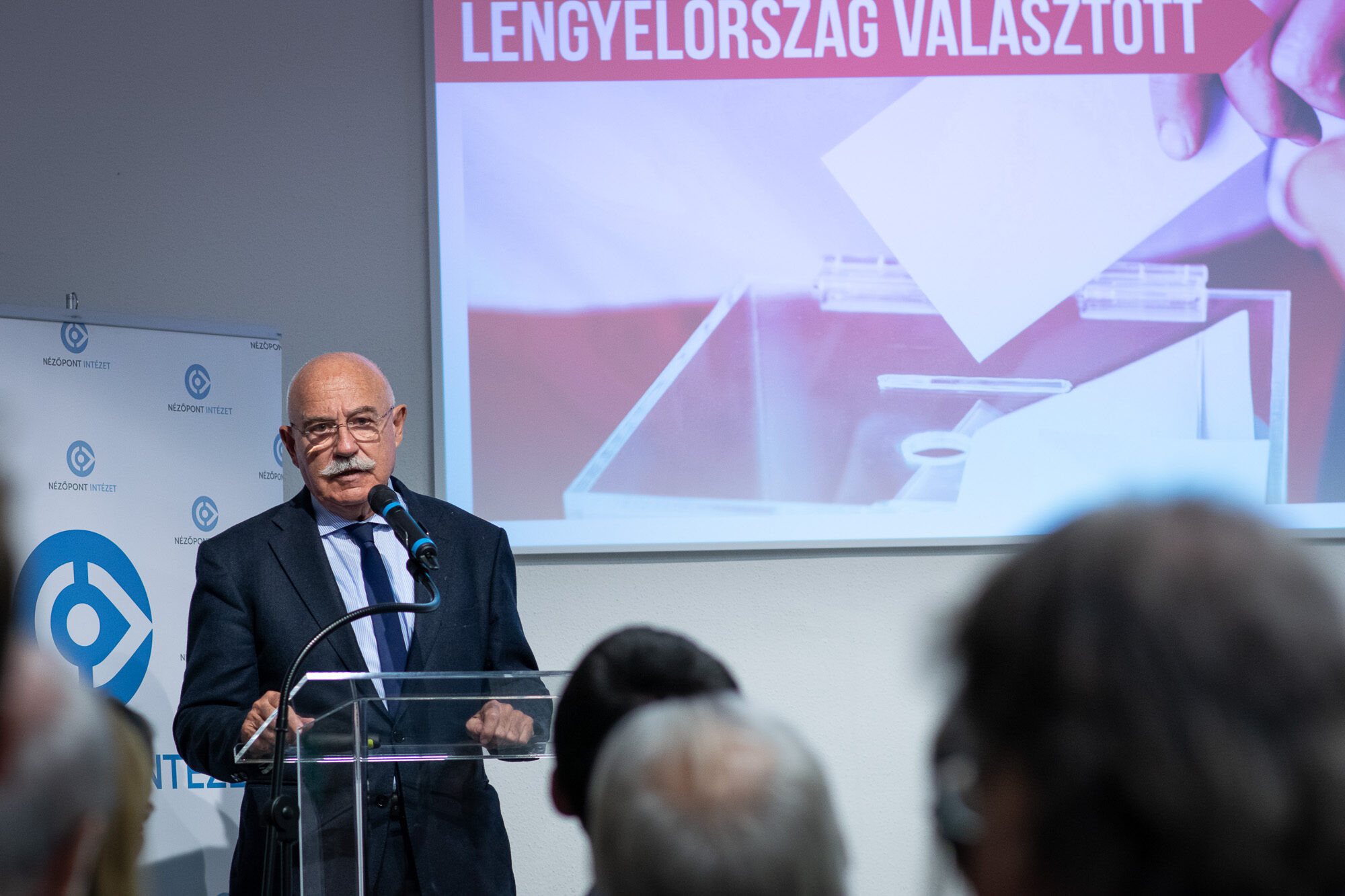Nézőpont Intézet organised a conference under the title „Poland Voted” on 22 October. Speakers at the event included former Hungarian Foreign Minister János Martonyi, President of the Instytut Wolności Igor Janke and Deputy State Secretary of the Hungarian Ministry of Foreign Affairs and Trade Ferenc Kumin.
In his opening address former Foreign Minister János Martonyi explained that the political cliché of countries having no friends only interests was not true of the relationship between Hungary and Poland. He recalled that it was the two peoples’ common historical experience that borders of the state and the nation did not necessarily coincide. The school of thought that brings national sovereignty to the fore, still characterising the two countries today, originates from this experience. He pointed out that being Central European was a kind of common destiny, in which the relationship between the Hungarian and Polish peoples was an important factor. In his view, the thirty years since the change of regime have brought the two countries closer together.
Nézőpont Group CEO Ágoston Mráz drew attention to the symbolic nature of the timing of the event emphasising that 22 October was Pope St John Paul II Memorial Day while 23 October was the anniversary of the 1956 Revolution. In his view, beyond symbolic persons and events connecting the two countries there are still political issues, in which there is full agreement between Warsaw and Budapest. These include protection of the family and Christian values, and the issue of immigration. He added that in the near future there would be a number of issues that could prove the strength of the bond, such as the enlargement of the European Union, relations with Russia and Ukraine, the issue of resettlement quotas or EU funds being subject to the rule of law. In connection with the latter he drew attention to the concept of the self-defending rule of law, a category describing the constitutional system of both countries. Both countries wanted a strong Europe but not a Europe of strongmen, he added.
Nézőpont Intézet senior analyst Márk Lajtai called attention to the fact that the 2020 presidential elections carried more significance than usual, as the head of state would be able to seriously hinder the realisation of the government’s legislative program by exercising his veto right. Nézőpont Intézet analyst Mihály Rosonczy-Kovács recalled that although the victory of the Law and Justice (PiS) party had looked certain from Hungary, the outcome of the election remained open until the final phase of the campaign. Jarosław Kaczyński’s well-built strategy had been vital for the victory of his party. Although the ruling party had achieved a victory of historical proportions, it was not entirely satisfied that it only had a narrow majority in the Sejm and a minority in the Senate despite its high social support, he added. At the same time the Upper House can only slow down but not hinder legislative work.
President of the Instytut Wolności Igor Janke viewed the situation similarly and thought that all had gained something with the election yet no one was completely satisfied. In his opinion the argument made by many that PiS was only able to win because it gave people money was wrong. More importantly, he believed that the ruling party had been able to reach out to people who were previously not involved in politics and were made to feel like second class citizens by the way the ruling elites approached them. „PiS has given these people dignity”, said the Polish analyst. Ferenc Kumin noted that Hungary’s diplomatic relations with Poland had always been particularly active, with over ten bilateral ministerial meetings held over the past year, which was a notably high number. The Deputy Secretary of State at the Hungarian Ministry of Foreign Affairs and Trade also said in his presentation that PiS had won in a high voter turnout election and was able to govern with a strong social mandate.
It was mentioned during the roundtable discussion concluding the conference that Central European countries should work closely together at the economic level as well. At any negotiating table around the world, the V4 with a population of 65 million would be easier for partners to interpret than any of its member countries individually, Ferenc Kumin pointed out. Igor Janke also called attention to the fact that Central Europe was the most dynamically developing economic region in the world, alongside South Korea and East Asia.
